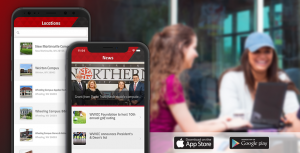Resume Writing
Your initial contact with an employer is often through a cover letter and resume. Your resume is very important in presenting yourself as a prospective employee. There are many points of view on what should be included in a resume. What goes into yours will depend on your own experiences, the type of job you are seeking, and the qualifications which you believe to be important to the employer.
Guide to Resume Writing includes sample resumes and tips.
Guide to Resume Writing for Health Care Majors includes samples and tips for those entering the health care field.
Job Description Search Tool will assist you in writing job descriptions for jobs such as server, cashier, etc.
Your College Central account provides you with a resume builder and career portfolio. You must create an account to access these features. If you need to create your free student or alumni account click here.
Resume Critique Appointments
Resume critique appointments are a good way to evaluate and update your resume. The Career Services Office can assist you with determining the best resume style for your employment history, writing descriptions of jobs held, and skill sections. Critiques can be completed by scheduling an appointment with the Career Services Office or via email. If corresponding via email, please allow for two business days.
Styles
- Functional (Emphasizes SKILLS)
- Chronological (Emphasizes JOB EXPERIENCE)
- Combination (Emphasizes SKILLS & JOB EXPERIENCES)
Employers Prefer
- Easy to read, scannable resumes. Stick to bullet format rather than paragraph.
- Employment dates should be listed in month year format (example: May 2003 - June 2008).
- To receive application materials (resume, cover letter, references) via email. If you are using email convert your documents to PDF format.
General Resume Tips
WRITE IT YOURSELF: Even if you have help composing and typing your resume, you must be prepared to defend or explain or expand upon everything that appears on it.
KEEP IT RELEVANT: You never know what the employer will use to screen you out of the process so don't volunteer information which is not directly related to your experience, skills, training and ability to do the job.
KEEP IT POSITIVE: Emphasize your accomplishments. Stay away from anything which can be interpreted with a negative connotation. Use action words. Show results. A positive attitude is essential in all phases of your job search.
BE SPECIFIC: Avoid using generalities. Document your abilities and experiences. Give specific examples, dates, activities, projects, numbers, etc.
BE HONEST: If given the opportunity, you will be expected to perform at the skill level claimed on your resume.
KEEP IT SHORT: Use short sentences and phrases. Use lists. Keep it to one page for entry level jobs. Employers are busy and do not want an autobiography. They want to be able to look at your resume and make a quick determination of what you can do for them.
BE ERROR FREE: Have someone else proof read your final resume. Simple misspellings or typographical errors are enough to get you screened out of the selection process.
MAKE IT LOOK GOOD: Save as a PDF to keep page layout intact, use plain block lettering font – no cursive or hard to read fonts, use dark font color – black is a good default.
If submitting a hard copy of your application material: use good quality paper, high contrast and laser quality print. Your resume must not only look good on its own, but it must look as good as or better than, all the other resumes on the employer's desk, even after being photocopied.
RESUME vs CV: Know the difference and look for which one the employer prefers. The most commonly asked for is a resume, but some employers would like to see a complete list of your employment history, aka a CV.
DON’T TENSE UP: If you are using verbs describing a previously held position, use past-tense verbiage. If you are describing a job that you are currently working, use present-tense verbiage.
Chat with our team 
Need Help?
General Questions
IT / Technology Help


